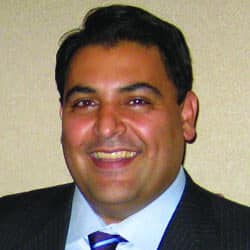#27 JJ Virgin
 Celebrity Nutrition & Fitness Expert, NY Times Bestselling Author
Celebrity Nutrition & Fitness Expert, NY Times Bestselling Author
http://www.jjvirgin.com
In September 2012, my teenage son Grant became the victim of a hit-and run-driver and left for dead in the street. Over those next weeks, I sat with him in the ICU while he was in a coma, followed by months in the hospital for recovery.
Grant’s tragedy occurred while I was launching what would become my New York Times bestseller The Virgin Diet. I had publishers, readers, and an entire team depending on that book. As the sole supporter for my family, I also depended on its success financially.
Needless to say, my ability to tolerate stress became challenged during this extremely difficult time.
To juggle those daunting responsibilities, I had to be at my best. That entailed clean eating, supplements, exercise, and at least 7 hours’ sleep every night.
All those things helped, but I found practicing daily intentioning most helpful to manage stress.
Every morning, I write what I feel grateful for as well as my short- and long-term goals. I call these “stretch goals.” In Grant’s case, that involved him becoming his healthiest, most vibrant self. I intentioned Grant being even better than before the accident, 110% improvement.
Then I share these with others to gather support and stay positive as intentions become reality.
My family is living proof intentioning works. Grant is on his way to complete recovery – actually becoming better than before – and continues to inspire others to become their best selves.
#28 Janine Driver
 Keynote Speaker, NY Times Best-Selling Author, President of the Body Language Institute
Keynote Speaker, NY Times Best-Selling Author, President of the Body Language Institute
http://www.lyintamer.com
- Just before going to important meetings I stay off my iPhone and/or my tablet and here’s why: Social Psychologist Amy Cuddy from Harvard University’s Business School conducted an experimental study, “iPosture: The Size of Electronic Consumer Devices Affects Our Behavior.” This study proved that the body posture that comes from operating everyday gadgets affects not only your back, but your demeanor. Cuddy concluded that being on your cellphone causes you to shrink yourself which can decrease confidence and increase stress. This is not ideal before going into an important meeting or giving a speech. Instead, if you need to send emails or check documents, try to use a larger screen like a desktop computer. By doing this it causes you to act more assertively than working on you iPhone or iPad.
- Power poses. There are a few different power poses that I like to do before important meetings or conversations. My favorite is the Superman pose, when you put your hands in your hips with your elbows out to your sides. These power poses increase testosterone and decreases the cortisol, the stress hormone, in your body. Amy Cuddy proved the positive effects of adopting expansive body postures – hands on hips, feet on desk, and the like during a 2010 report by Andy Yap, Cuddy and Dana Carney, “Power Posing: Brief Nonverbal Displays Affect Neuroendocrine Levels and Risk Tolerance.” Deliberately positioning the body in one of these “power poses” for just a few minutes actually affects body chemistry, increasing testosterone levels and decreasing cortisol levels. This leads to higher confidence, more willingness to take risks, and a greater sense of well-being. Great for stress!
- When you clap and rub your hands together, this movement sends a message to the brain that success is coming. It gets it excited! I especially like this move when I’m uncertain about a situation and am nervous or stressed about how it’s going to turn out. I’m literally tricking my brain into thinking there will be great success.
#29 Izabella Wentz
 Pharmacist, Patient, Pioneer and Author On The Topic Of Hashimoto’s Thyroiditis
Pharmacist, Patient, Pioneer and Author On The Topic Of Hashimoto’s Thyroiditis
http://www.thyroidpharmacist.com
- Read self-help books on relaxation, overcoming stress, etc. “How To Stop Worrying And Start Living” by Dale Carnegie is a great classic.
- Listen to books on CD while doing things you don’t enjoy. For example I despise traffic and cleaning the house. Listening to a book on CD keeps my busy mind engaged instead of worrying about the traffic or the house.
- Be more resilient by being more flexible. Bruce Lee once said “Notice that the stiffest tree is most easily cracked, while the bamboo or willow survives by bending with the wind.”
- Control freaks … learn to let it go. You can’t rest the weight of the world on your shoulders. Retire from your position as CEO of the Universe. You will be much better off and surprisingly, the world will go on.
- Orderliness and predictability are your friends. Plan your life that way when you can. Catch up on bills, checkbooks, and your long to-do lists. Keep your space neat and clean. Schedule times to clean the house and catch up on life, not just big events. Make sure you schedule down time as well.
- Mindfulness. Pausing, and being present and observant of how things are affecting you can be a great way to learn how to relax yourself.
#30 Dr. Datis Kharrazian
 Innovator In Non-Pharmaceutical Treatments For Chronic Illnesses, Autoimmune Disorders & Neurological Disorders
Innovator In Non-Pharmaceutical Treatments For Chronic Illnesses, Autoimmune Disorders & Neurological Disorders
http://thyroidbook.com
One of the most important and most overlooked ways to combat stress is to manage your blood sugar. Most people today are dealing with low blood sugar, high blood sugar, or both. If you feel more energetic after eating your blood sugar is too low. If you feel drowsy after eating, your blood sugar is too high. You should simply feel no longer hungry — energy levels remain even when blood sugar is stable.
Blood sugar highs and lows are enormously stressful on the body and the brain, contributing to myriad health imbalances. It never ceases to amaze me how many symptoms can be resolved and health conditions improved simply by adopting eating habits that keep blood sugar stable.
#31 Dr. Jill Carnahan
 Author, Speaker, And Founder Of Flatiron Functional Medicine
Author, Speaker, And Founder Of Flatiron Functional Medicine
http://www.jillcarnahan.com
Did you know that one of the most healthy emotions for your heart is gratitude (the other is love). Start making habits today of incorporating an “attitude of gratitude” into each day. It works because it recruits other positive emotions like joy, contentment, hope. Conscious appreciation actually gives the mind a boost. It can even help to produce endorphins and dampen the stress response. Studies show that gratitude is a habit, just like flossing.
Here are some helpful hints to get you going:
- Keep a gratitude journal – one of the most effective ways to cultivate appreciation is to write it down. I often have patients keep a journal and right down five things before bed that made them happy or thankful that day.
- Express yourself – it’s important to share gratitude with others. If you really articulate what you are grateful for, it’s contagious. Be specific and consider delivering a handwritten note of thanks.
- See a bigger picture – grateful people spot the positive without denying the pain or hurt.
- Celebrate Thanksgiving EVERY day! Many families do a round of thanksgiving at the dinner table each night. My husband & I have a special box which we drop notes of blessing or thanks into each day, then at the end of the month or week, we read them together to remind us of all the good things God has done for us.
#32 Dr. Jen Landa
 Hormone Expert And Author Of The Sex Drive Solution For Women
Hormone Expert And Author Of The Sex Drive Solution For Women
http://DrJenniferLanda.com
I eat lots of chocolate!!
Cocoa that is… I put 100% cocoa powder in my protein shake every morning, I eat 100% cocoa nibs with nuts as a snack throughout the day, I have a small piece of very dark chocolate (85% cocoa or more) after lunch and dinner. Sometimes I make a dairy-free chocolate mousse with 100% cocoa powder, avocado and coconut cream (yum!) for dessert. High cocoa consumption has become a daily necessity for me.
I even carry my favorite chocolate bars with me on trips – organic Green and Black’s 85% cocoa. Cocoa is the strongest antioxidant on the planet (yes, stronger than acai berries) so it protects me from the constant attack we’re under from pollutants to pesticides in our world (which are huge unseen stressors). Cocoa is high in magnesium which is super-calming. Cocoa also contains chemicals that are the same as those in your body when you fall in love – who couldn’t use more of that to combat stress?
All my go to sources of cocoa are low in sugar so I get to eat the chocolate without the weight gain! A piece of super dark chocolate and a cup of herbal tea and everything is right with my world.
#33 Dr. Steven Hotze
 Author, Radio Host, And Founder Of The Hotze Health & Wellness Center
Author, Radio Host, And Founder Of The Hotze Health & Wellness Center
http://www.hotzehwc.com
Chronic stress can wreak havoc on the body, from disrupting sleep and hormone levels to more serious conditions like infections, heart disease, cancer and stroke. Pharmaceutical drugs only mask symptoms and contain toxins with negative side effects.
Take control with these tips to relieve stress, naturally:
- Build your arsenal: Vitamin C, magnesium, B-complex, GABA, 5-HTP, green tea, phosphatidyl serine, amino acid complex, rhodiola, and inositol.
- Evaluate for adrenal fatigue: Also known as chronic fatigue, adrenal fatigue is when the adrenal glands through chronic stress cannot meet the body’s demands for cortisol.
- Bioidentical cortisol can help the adrenal glands recover.
- Eat organic fruits and vegetables. Avoid processed food and sugars.
- Engage in exercise.
- Invest in good sleep to give your body a chance to restore itself.
- Close your eyes and breathe deeply for a minute. Repeat as needed.
- Write down your goals, what you want to achieve, and take action. This will give you peace of mind in knowing that you are working towards your goal.
- Declutter your home and work space. You will be surprised at how calm and in control you will feel.
#34 Krista Stryker
 Personal Trainer And Founder Of 12 Minute Athlete
Personal Trainer And Founder Of 12 Minute Athlete
http://www.12minuteathlete.com
When I’m stressed out, the very best thing for me is to do to try and de-stress is to do a really intense, heart pounding HIIT workout. Jump roping, burpees, box jumps, pull ups, even boxing—it all helps me clear my head, so long as I end up exhausted, muscles shaking, with sweat dripping like crazy afterwards.
If my workout still doesn’t do it, the one foolproof method that nearly always does the trick is to go for a really long walk outside. Whether it’s taking my dog to the beach for a few hours or exploring the city where I live by foot, there’s nothing quite like fresh air plus a little exercise to melt away the day’s worries and put things into perspective.
#35 Chris Lemig
 Writer, Speaker, And Student Of Tibetan Buddhism
Writer, Speaker, And Student Of Tibetan Buddhism
http://www.thenarrowwaybook.com
I may be a Buddhist but I still get stressed. Work, writing, study, and other commitments pile up and the result for me is often a twisted, knotted stomach full of stress.
But fortunately, the Buddhist tool kit is full of all kinds of great things I can use to ease that suffering.
My favorite technique is a spin on a Buddhist practice called The Four Immeasurable Emotions. I just work with the first two: Immeasurable Love and Compassion.
When I get stressed, I try to recall that I’m not the only one in the world who’s having such stressful feelings. In fact, most sentient beings suffer from stress many times throughout the course of any given day.
I then tell myself:
“May I and all beings be free from stress and worry. May I and all sentient beings be well and at ease. May we all find temporary and ultimate happiness”.
This does two things: It takes the focus off of me, effectively crashing the pity party. Second, it puts things into perspective and gives me some space from my own stress.
Give this practice a try and see if it works for you.
#36 Tamara Star
 Best Selling Author, Life Coach, Creator Of The Original 40-Day Personal Reboot Camp For Women
Best Selling Author, Life Coach, Creator Of The Original 40-Day Personal Reboot Camp For Women
http://www.dailytransformations.com
I believe like happiness, stress is a choice. How we respond to any situation is dictated by our habits and our beliefs. Here are my top ways to instantly transform stress.
- Close your eyes and inhale through your nose to a count of 8, hold your breath for a second or two and exhale through your mouth. Exhaling through your mouth consciously activates the vagus nerve, which in turn, activates the parasympathetic nervous system. Muscles relax, oxygen supplies increase and the body starts to produce endorphins – your feel good hormones.
- Go for a walk in nature. Tune into what you see, hear, and feel. When we tune into our senses, we’re delivered into the present moment where peace resides.
- Eat a salad or drink a green smoothie. Greens contain high amounts of minerals, which are natural muscle relaxants.
- Smell essential oils. Essential oils cross the blood brain barrier of the brain (like drugs) affecting the limbic system, the seat of your emotions.
- Yawn. Yawning releases tension.
- Lay on the earth. Earthing has been scientifically proven to reduce stress and bring our nervous systems back into balance. The first thing animals do when sick or wounded is lay on the earth.
- Organize something. Focusing on a task, while experiencing the feel-good side effects of an instant accomplishment, works!
- Spin. The Sufis understood the power of spinning. Spin like a child: arms out wide, legs hip width apart and go for it.
- Deep belly breathe. Shallow breathing activates the meridians near the collarbones that pump up your fight or flight response (stress).
- Tone. Literally make noise. Moan, sigh, or even talk gibberish. Making sound moves energy.
- Get outside and look at the sky. The vastness of what’s above reminds us of a greater mystery and vast possibility, ultimately putting everything into perspective.
#37 Lisa Richards
Digestive Health Expert, Author of the Ultimate Candida Diet program
http://www.thecandidadiet.com
My favorite remedy for stress is very simple — taking a long walk along the beach near my house. I like to stop in a quiet area and do some deep breathing exercises. The rhythmic sound of the waves, the fresh sea air, and the warmth of the sun all have a tremendously calming effect.
My readers know that I’m also a huge proponent of good quality probiotics, and recent studies have suggested that they can reduce long term stress levels. One animal study in 2011 showed that mice fed probiotics had a lower physiological response to stress than mice who had not taken probiotics. And in a more recent human study at UCLA, researchers found that supplementing the diet with probiotic yogurt actually reduced the response to emotional tasks.
#38 Dr. Deanine Picciano
 Doctor Of Oriental Medicine, Acupuncture Physician, Specializing In Women & Children’s Health
Doctor Of Oriental Medicine, Acupuncture Physician, Specializing In Women & Children’s Health
http://drdeanine.com
Lets face it. Optimal health does not just depend on how perfect your diet is, or on taking a particular supplement or herb. Although all that can help, it is ultimately how you handle stress and your thoughts that also influence your state of health.
We cannot control everyone, everything, or what happens to us. We know that. We sometimes cannot control how we respond in our body, especially on a subconscious or visceral level, to the events that occur in our lives. But we can breathe through it in a way that keeps us in the driver’s seat.
One of the most powerful ways you can stay centered and counteract the physical effects of stress is to breathe optimally. Breathing deeply affects your life force and how it flows. When the “fight or flight” aspect of your nervous system is on, your body perceives you are under attack, and breath often becomes shallow and chest-centered. Breathing deeply, or diaphragmatic “belly breathing”, can lower cortisol and signal to your nervous system to “rest and digest” as opposed to “fight or flight”.
A true functional, relaxing breath starts slowly in the lower belly and moves upward toward the heart. Like water filling a vase, your breath should fill in the bottom of your belly first and move up to the chest. If you notice that you are not breathing optimally, it is probably because your midsection, diaphragm or chest feels tight. A key piece of enhancing your capacity to breathe is to release the tight diaphragms and muscles that are preventing you from full, optimal breathing. Releasing a tight diaphragm or muscle can be accomplished by intention, a stretch, yoga postures, bodywork or acupuncture or having a CranioSacral Treatment.
Connecting with deep breathing is the key to power in the present moment and sets the foundation for healing. So next time you feel stressed, BREATHE, be the vase, stay centered and let it go.
#39 Toni Bernhard
 Author Of The Award-Winning “How To Be Sick”
Author Of The Award-Winning “How To Be Sick”
http://www.tonibernhard.com
My best tip for coping with stress is based on Active Listening, a technique where you feed back to others their emotional pain by restating it in your own words, so that the they feel heard and understood.
My twist is that I Active Listen to myself. I craft a phrase that addresses specifically the stress I’m experiencing at the moment, and then I speak it silently or softly to myself. Two examples: “It’s hard to feel like I’m missing out on so much because I’m too sick to participate”; “It’s tough to be in pain so much of the time even though my body is doing its best to support me.”
Crafting phrases that speak directly to what I’m feeling connects me with my own heart. The result is that I feel deeply cared for and this alleviates my stress.



These are quite helpful but also somewhat inconsistent. You would spend an awful lot of time trying to work which one best suited to you.
These are personal tips from 50 individuals, so of course they won’t all be the same 🙂 They should be useful for readers who are looking to find some alternative ways to deal with their stress.
This has been really useful; in confirming some of the knowledge and tools I already have and use and it has given me new ideas. Thanks
Very informative! So many different STRESS BUSTING TIPS!,
I shall be practicing. Thank you so much,
You are a RADIATING CENTER!
Hi Lucy, thanks for your kind words!
Ugh… Ugh… (speechless)–what an undertaking… what a compilation… what a tremendous resource this is! I picked this post to be the #BetterFatBurner link of the day! I like, pin, and tweet a link each weekday that promotes becoming a better-fat-burner. Your site is a treasure trove of B-F-B info! Please check me out–I’m new, web-wise, and would love to hear from you!
Thanks Blair, it was certainly a lot of work to put together! I know that many people have found it really useful, so that makes it all worth it 🙂
Thanks for the article! I love Dr. Reed Davis’s suggestion to eat enough, sleep enough and do lots of exercises. Eating and sleeping are fundamental to our bodies and without these important factors, they will fail. The exercise helps with keeping hormones in check and giving off positive emotions instead of negative emotions. I have depressive anxiety and I constantly get stressed out and break down. I feel like this article has really helped me and I will be using these tips for a long time.